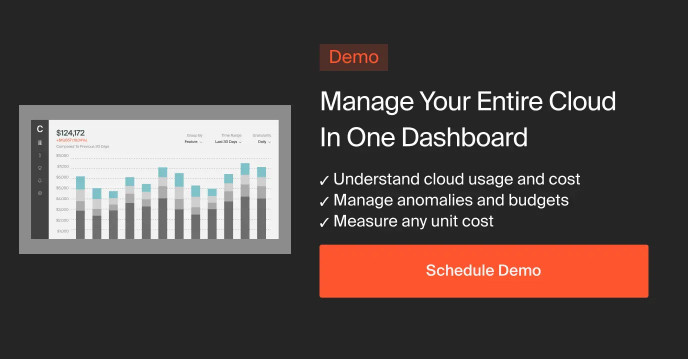Cloud computing has revolutionized the way businesses operate, offering scalability, flexibility, and cost-efficiency. At the heart of this revolution are Cloud Server Providers, the companies that make this technology accessible. From e-commerce giants to startups, organizations of all sizes are leveraging cloud servers to power their operations, store data, and deliver services. Understanding what cloud server providers are, the benefits they offer, and the key players in the market is crucial for any business looking to thrive in the digital age. This guide will delve into the world of cloud server providers, exploring their role, advantages, challenges, and the top providers shaping the industry in 2024.
Defining Cloud Server Providers
A cloud server provider, also known as a Cloud Service Provider (CSP), is a company that offers computing services – including servers, storage, networking, software, analytics, and intelligence – over the internet (“the cloud”). Essentially, they rent out a combination of infrastructure, technology, and expertise, allowing businesses and individuals to access and utilize powerful computing resources without the need for significant upfront investment in physical hardware and IT infrastructure.
These providers operate and maintain vast networks of data centers around the globe. These data centers are the physical backbone of cloud computing, housing the servers, storage devices, networking equipment, and cooling systems that power the cloud. By connecting to these data centers via the internet, customers can purchase computing capacity and resources on demand, often using a pay-as-you-go pricing model. This means you only pay for the resources you actually consume, similar to how you pay for utilities like electricity or water.
Cloud server providers offer various types of services, broadly categorized into:
- Infrastructure as a Service (IaaS): Providing access to fundamental computing infrastructure like virtual machines, storage, and networks. Users have control over the operating system, storage, and deployed applications.
- Platform as a Service (PaaS): Offering a platform for developing, running, and managing applications without the complexity of managing the underlying infrastructure.
- Software as a Service (SaaS): Delivering software applications over the internet, typically on a subscription basis. Users access the software through a web browser or application, without needing to install or manage it.
 The Cloud Cost Playbook
The Cloud Cost Playbook
The Benefits of Choosing a Cloud Server Provider
Opting for a cloud server provider offers a compelling alternative to building and maintaining an in-house, on-premises infrastructure. The advantages are numerous and can significantly impact a business’s efficiency, scalability, and bottom line.
Cost Efficiency and Reduced Capital Expenditure
One of the most significant benefits is the reduction in capital expenditure (CAPEX). Businesses avoid large upfront investments in hardware, software licenses, and data center infrastructure. Instead of purchasing servers, storage systems, and networking equipment, they pay operational expenses (OPEX) in the form of subscription fees or usage-based charges to the cloud provider. This pay-as-you-go model aligns IT costs with actual resource consumption, making it more predictable and manageable.
Faster Deployment and Time-to-Market
Cloud server providers enable rapid deployment of IT resources. Setting up and configuring on-premises infrastructure can be time-consuming, often taking weeks or even months. With cloud servers, resources can be provisioned and made available within minutes. This speed and agility significantly accelerate time-to-market for new products and services, giving businesses a competitive edge.
Enhanced Agility and Scalability
Cloud environments are inherently agile and scalable. Businesses can easily scale their resources up or down based on demand. During peak periods, they can quickly increase computing power and storage capacity, and then scale back down during quieter times. This elasticity ensures optimal performance and avoids over-provisioning, which can lead to wasted resources and unnecessary costs in traditional infrastructure.
Access to Advanced Cloud Computing Services (IaaS, PaaS, SaaS, Serverless)
Cloud server providers offer a wide range of advanced services beyond basic infrastructure. This includes platforms for application development (PaaS), ready-to-use software applications (SaaS), and serverless computing options. These services empower businesses to innovate faster, develop sophisticated applications, and leverage cutting-edge technologies like artificial intelligence and machine learning without the need for specialized in-house expertise in every area.
Flexible Cloud Deployment Models (Public, Private, Hybrid, Multi-cloud)
Cloud server providers offer flexibility in deployment models. Businesses can choose from public clouds (shared infrastructure), private clouds (dedicated infrastructure), hybrid clouds (a mix of public and private), and multi-cloud environments (using services from multiple providers). This variety allows organizations to tailor their cloud strategy to their specific needs, security requirements, and compliance obligations.
Pay-as-you-go Pricing and Cost Optimization
The pay-as-you-go pricing model ensures that businesses only pay for the resources they actively use. There are no upfront costs, provisioning fees, or long-term contracts in many cases. This model promotes cost optimization and eliminates the risk of investing in underutilized infrastructure. Cloud server providers also offer various cost management tools and strategies to help customers further optimize their cloud spending.
Managed Services and Reduced IT Burden
Many cloud server providers offer managed services, taking on the responsibility for tasks like infrastructure maintenance, security updates, and monitoring. This reduces the burden on internal IT teams, freeing them up to focus on strategic initiatives and core business functions rather than routine infrastructure management.
Robust Disaster Recovery and Business Continuity
Cloud server providers offer geographically distributed data centers and robust disaster recovery capabilities. Data can be replicated across multiple locations, ensuring business continuity in the event of a local outage or disaster. This level of redundancy and resilience is often difficult and expensive to achieve with on-premises infrastructure.
Navigating the Challenges of Cloud Server Providers
While the benefits of cloud server providers are compelling, it’s also essential to be aware of the potential challenges and address them proactively.
Data Confidentiality and Privacy Concerns
Storing data with a third-party provider raises concerns about data confidentiality and privacy, especially for sensitive business information and customer data. Businesses need to carefully evaluate the security measures and compliance certifications of cloud providers to ensure their data is protected and that regulatory requirements are met. Understanding data residency and jurisdiction is also critical, particularly for international businesses.
Data Security Risks and Vulnerabilities
Although cloud server providers invest heavily in security, cloud environments are not immune to security threats. Data breaches and cyberattacks can still occur. Businesses need to share responsibility for security with the provider, implementing strong security practices on their end, such as access management, data encryption, and regular security audits.
Limited Infrastructure Control and Customization
Compared to on-premises infrastructure, businesses have less direct control over the underlying hardware and infrastructure in a cloud environment. While cloud providers offer various configuration options, customization may be limited in certain areas. Organizations with highly specific infrastructure requirements may need to carefully assess the level of control offered by different providers.
Vendor Lock-in and Migration Complexity
Becoming heavily reliant on a single cloud server provider can lead to vendor lock-in. Migrating applications and data to a different provider can be complex, time-consuming, and costly. Adopting a multi-cloud strategy or using open standards and technologies can help mitigate vendor lock-in risks and increase flexibility.
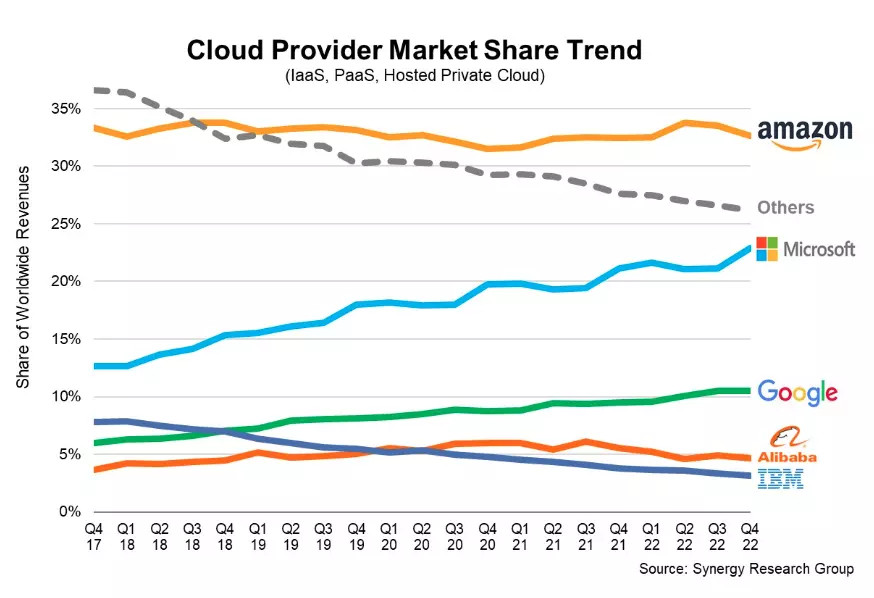 Cloud Service Provider Line Graph
Cloud Service Provider Line Graph
Market Leaders: Top Cloud Server Providers in 2024
The cloud server provider market is dynamic and competitive, with a few dominant players and numerous specialized providers. Understanding the market landscape is essential for making informed decisions.
The Dominance of AWS, Azure, and GCP
Amazon Web Services (AWS), Microsoft Azure, and Google Cloud Platform (GCP) are often referred to as the “Big Three” in the cloud computing industry. They collectively hold a significant majority of the global market share. These providers offer a comprehensive suite of cloud services, extensive global infrastructure, and cater to a wide range of industries and use cases.
- Amazon Web Services (AWS): The market leader, known for its vast array of services, mature platform, and strong focus on Infrastructure-as-a-Service (IaaS). AWS is popular for its scalability, reliability, and comprehensive ecosystem.
- Microsoft Azure: A strong second in market share, Azure benefits from its integration with Microsoft’s enterprise ecosystem and strengths in hybrid cloud solutions. Azure is popular among organizations already invested in Microsoft technologies.
- Google Cloud Platform (GCP): GCP is recognized for its innovation in areas like data analytics, machine learning, and Kubernetes. GCP is gaining traction, particularly among companies focused on data-intensive workloads and cutting-edge technologies.
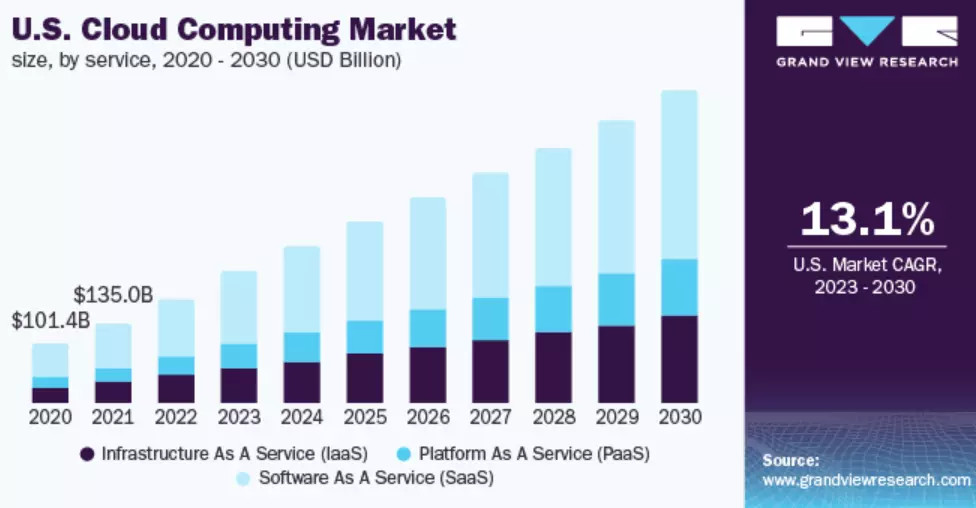 Cloud Service Provider Market Share Bar Chart
Cloud Service Provider Market Share Bar Chart
13 Leading Cloud Server Providers
Beyond the “Big Three,” numerous other cloud server providers offer valuable services and cater to specific niches. Here are 13 top cloud server providers in 2024, expanding on the original list:
1. Amazon Web Services (AWS) – Infrastructure-as-a-Service (IaaS)
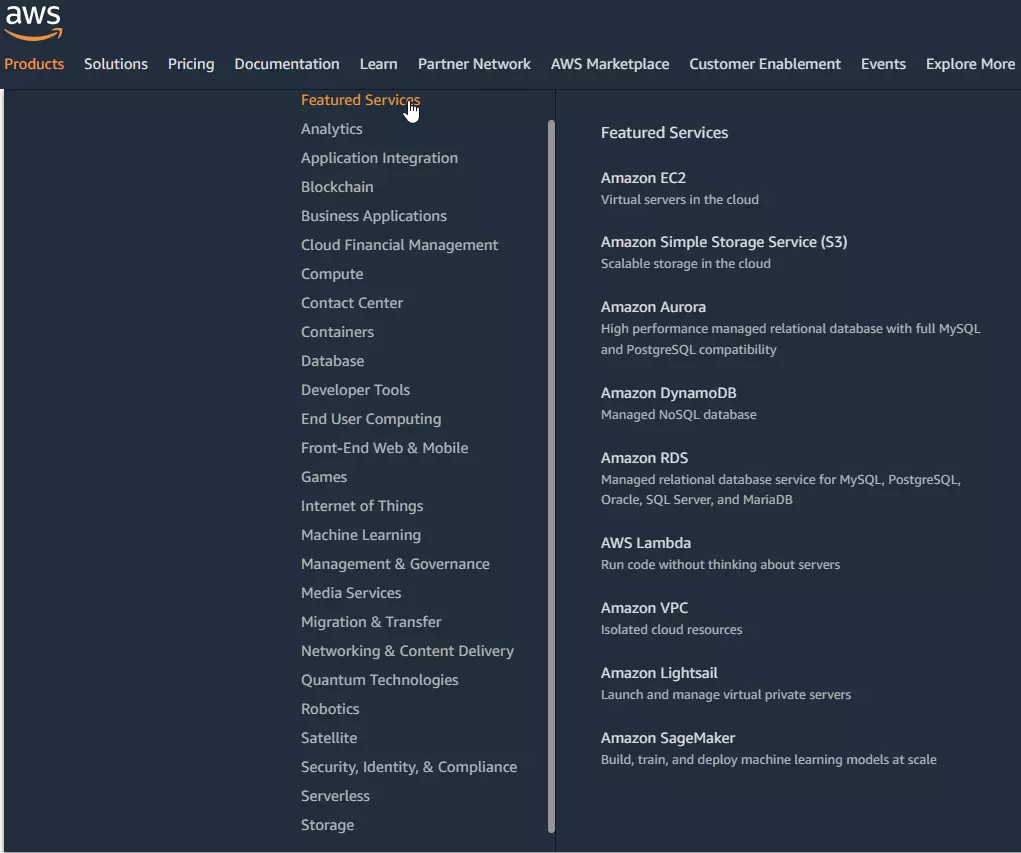 Amazon Web Services (AWS)
Amazon Web Services (AWS)
AWS remains the dominant cloud server provider, offering over 200 services, primarily focused on IaaS solutions. Its Elastic Compute Cloud (EC2), Simple Storage Service (S3), and Relational Database Service (RDS) are foundational services for many cloud deployments. AWS is known for its extensive global reach with numerous Availability Zones and Regions, catering to businesses of all sizes and industries.
2. Microsoft Azure – Hybrid Cloud and Enterprise Cloud Services
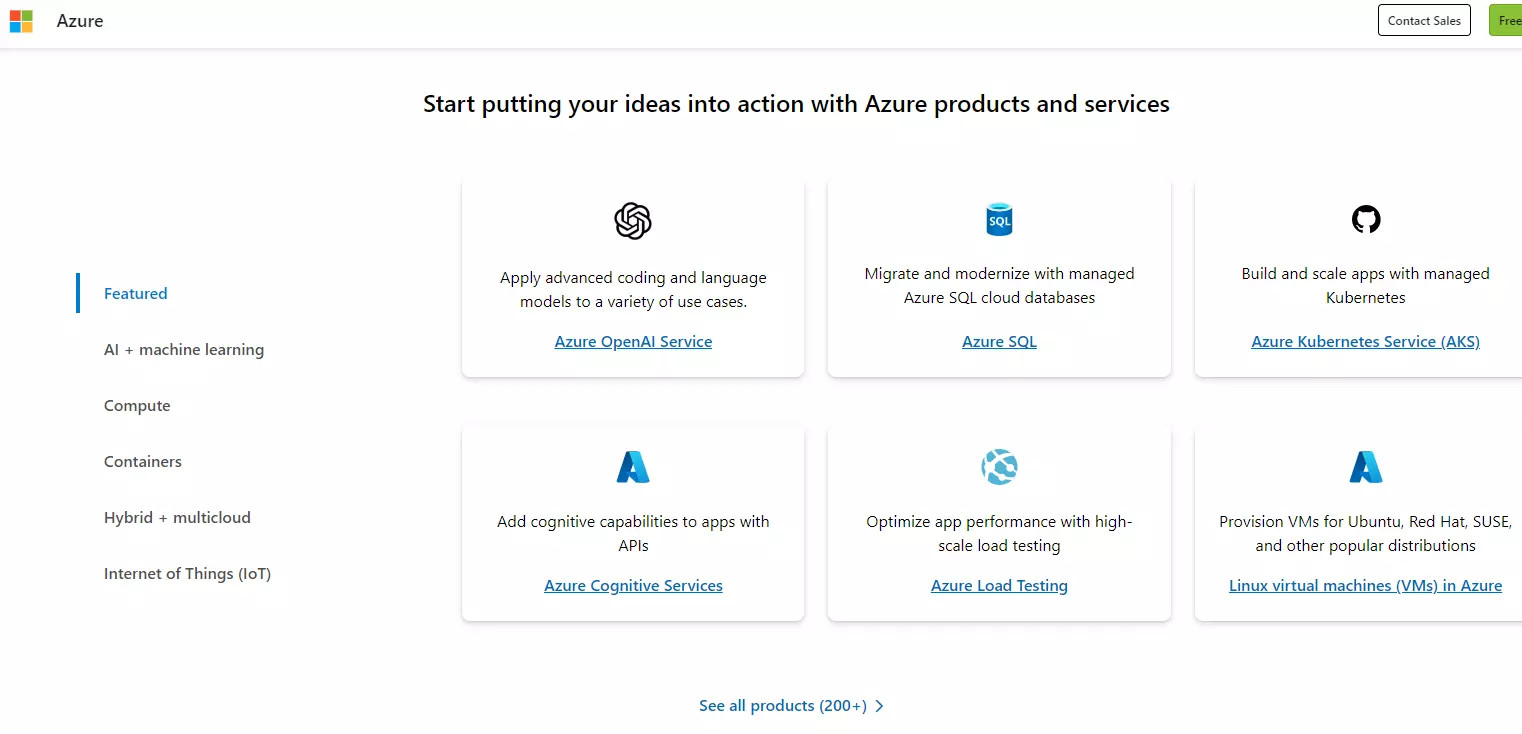 microsoft azure
microsoft azure
Microsoft Azure is a rapidly growing cloud server provider, particularly strong in hybrid cloud deployments and enterprise solutions. Azure seamlessly integrates with Microsoft’s ecosystem, making it a natural choice for organizations heavily invested in Windows Server, .NET, and other Microsoft technologies. Azure offers a comprehensive suite of services, including IaaS, PaaS, and SaaS, with a strong focus on enterprise-grade security and compliance.
3. Google Cloud Platform (GCP) – AI, ML, and Kubernetes
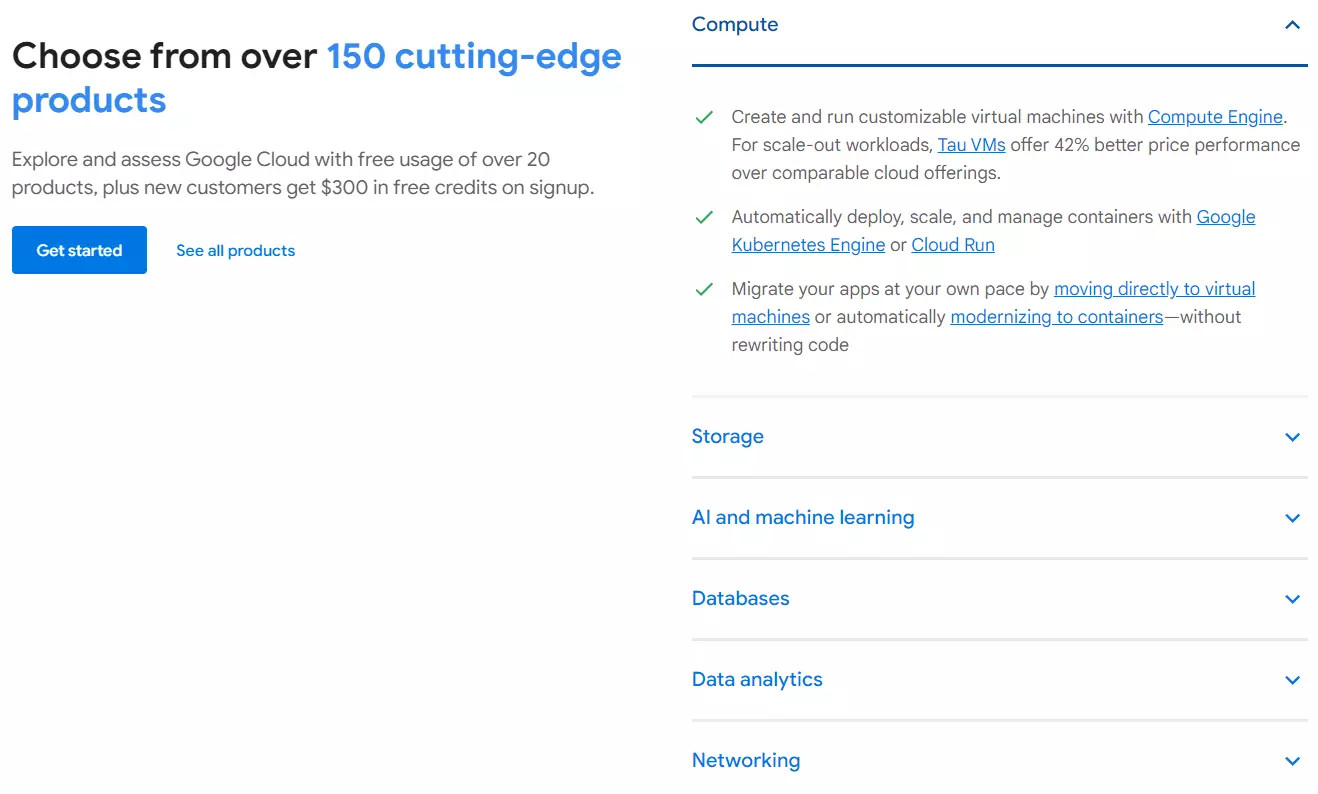 Google Cloud Platform (GCP)
Google Cloud Platform (GCP)
Google Cloud Platform (GCP) differentiates itself with its strengths in data analytics, artificial intelligence (AI), machine learning (ML), and container orchestration with Kubernetes. GCP is a popular choice for data-driven companies and those leveraging cutting-edge technologies. It offers a robust and innovative platform, benefiting from Google’s expertise in these areas.
4. Alibaba Cloud – Largest Cloud Server Provider in Asia
 alibaba
alibaba
Alibaba Cloud is the dominant cloud server provider in Asia and a significant global player. It offers a comprehensive range of cloud services similar to AWS and Azure, catering to businesses operating in Asia and globally. Alibaba Cloud is known for its strong presence in e-commerce and its ability to support large-scale operations.
5. IBM Cloud – Multi-cloud CSP
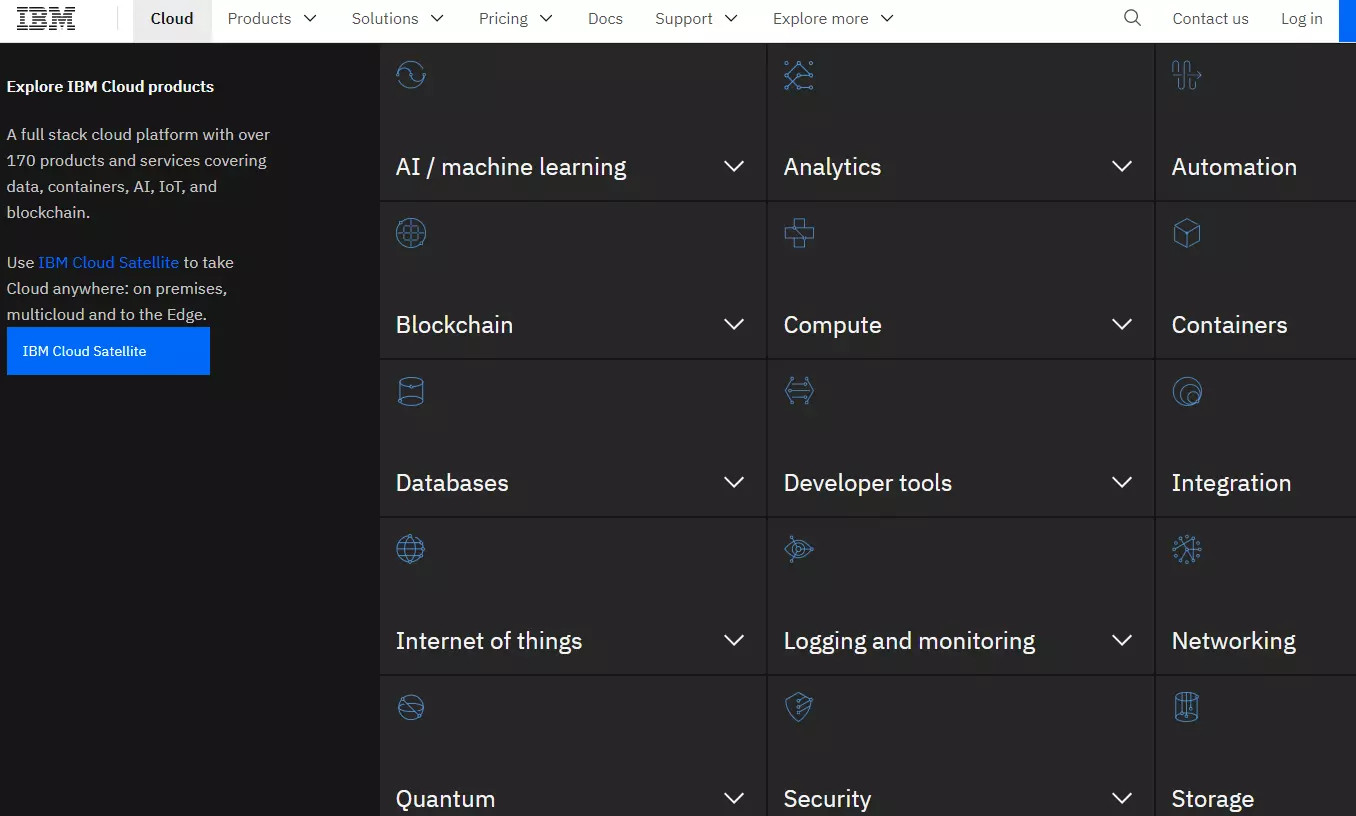 ibm cloud
ibm cloud
IBM Cloud focuses on hybrid and multi-cloud solutions, helping businesses bridge their existing on-premises infrastructure with the cloud. IBM Cloud is well-suited for organizations in regulated industries with strict compliance requirements. It offers a range of services, including IaaS, PaaS, and SaaS, with a strong emphasis on security and enterprise-grade reliability.
6. DigitalOcean Cloud – Cloud Computing Tools for SMBs and Developers
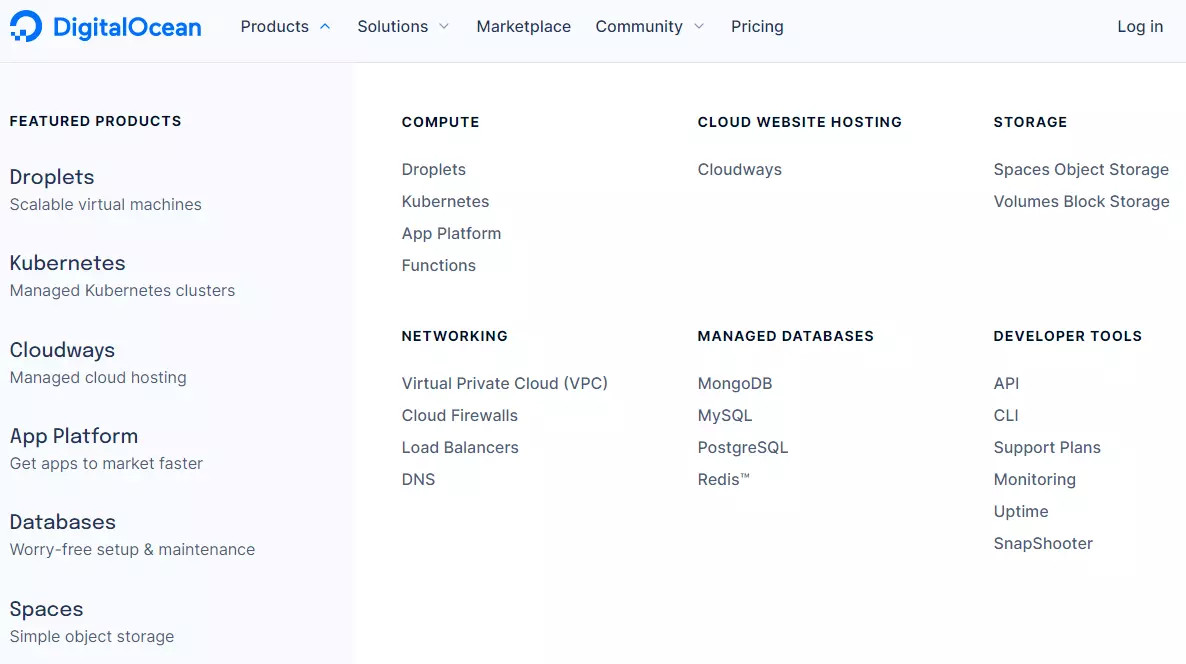 digitalocean cloud
digitalocean cloud
DigitalOcean Cloud is known for its simplicity, developer-friendliness, and focus on small and medium-sized businesses (SMBs) and developers. It offers a streamlined platform with easy-to-use tools and a pay-as-you-go pricing model. DigitalOcean is a popular choice for startups, developers, and businesses seeking a straightforward and affordable cloud solution.
7. Salesforce Cloud – Cloud-hosted Services
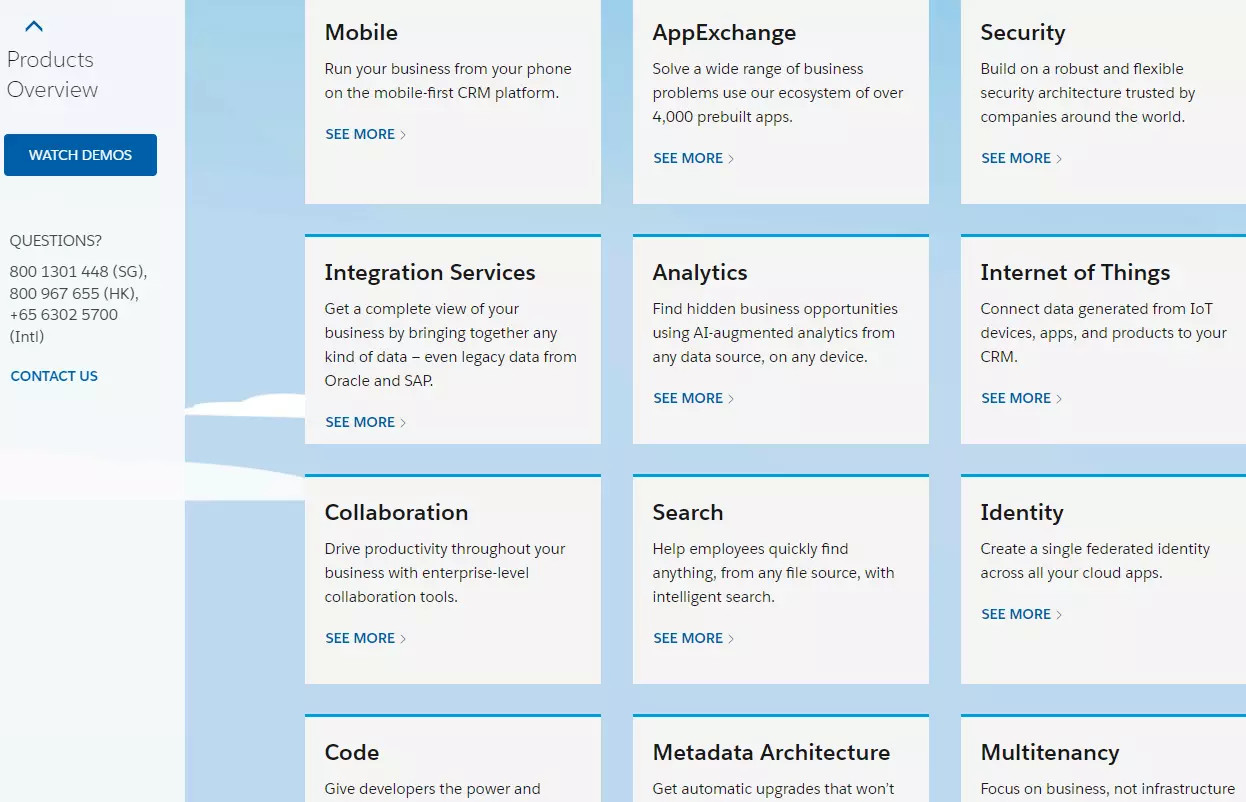 salesforce cloud
salesforce cloud
Salesforce Cloud is a pioneer in the Software-as-a-Service (SaaS) model. It provides a suite of cloud-based applications focused on customer relationship management (CRM), sales, marketing, and customer service. Salesforce is a leading provider of SaaS solutions, empowering businesses to manage customer interactions and business processes in the cloud.
8. Tencent Cloud
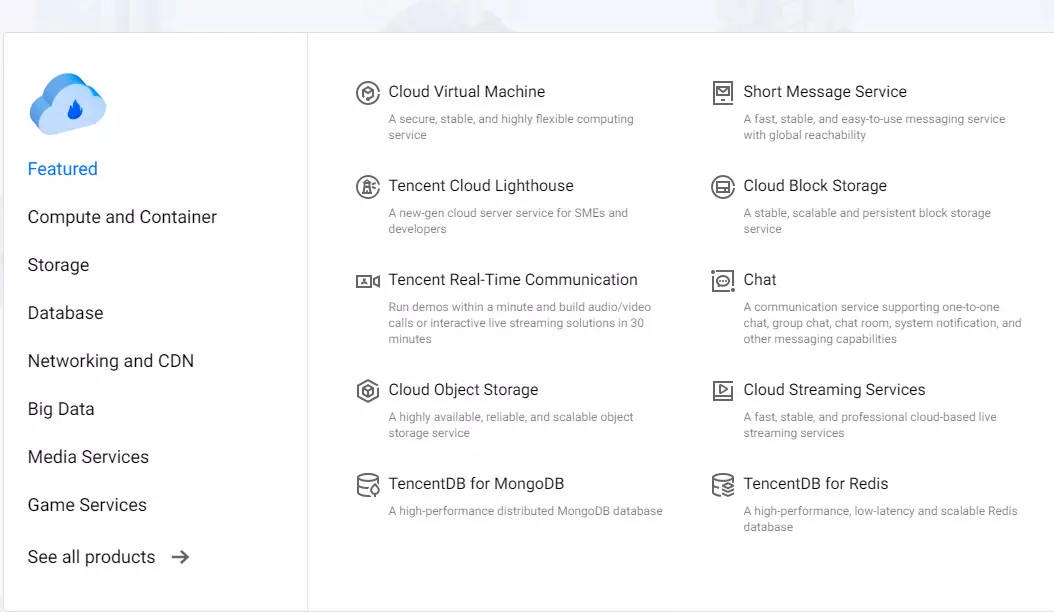 tencent cloud
tencent cloud
Tencent Cloud is another major cloud server provider in China and a growing global player. Similar to Alibaba Cloud, Tencent Cloud offers a broad range of cloud services and infrastructure, catering to businesses in China and internationally. Tencent Cloud is known for its expertise in gaming, social media, and digital entertainment.
9. Oracle Cloud Infrastructure (OCI) – All-around CSP with a Focus on Databases, Custom Apps
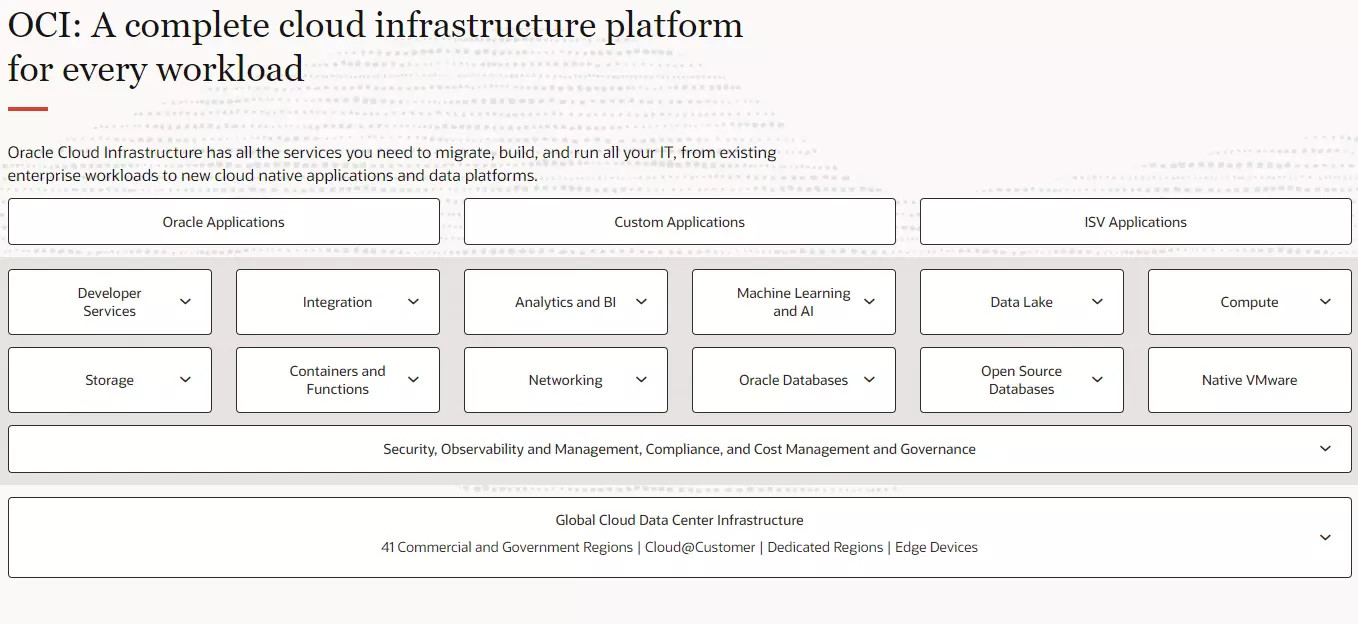 OCI
OCI
Oracle Cloud Infrastructure (OCI) offers a comprehensive cloud platform with a strong focus on databases, enterprise applications, and performance. OCI is designed to run Oracle workloads optimally and provides a range of services, including IaaS, PaaS, and SaaS. It is a compelling option for organizations heavily invested in Oracle technologies.
10. Huawei Cloud – Going Global
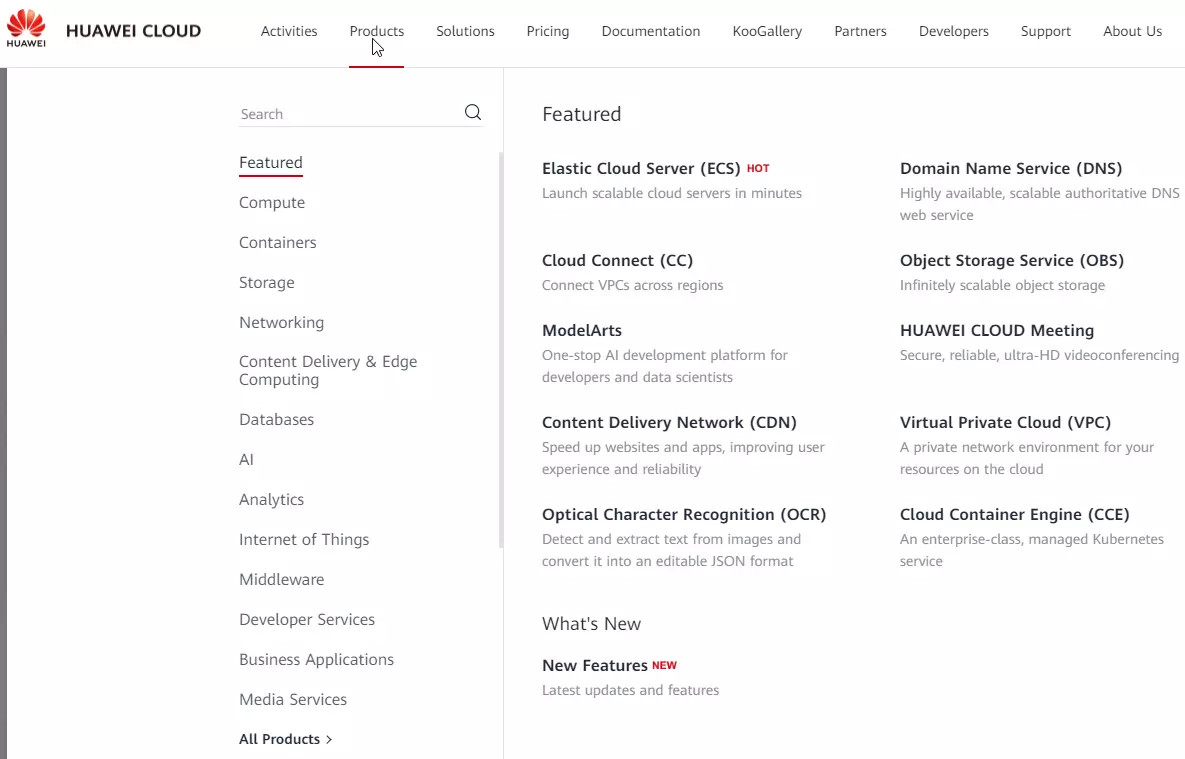 huawei cloud
huawei cloud
Huawei Cloud is rapidly expanding its global presence, aiming to become a major international cloud server provider. Huawei Cloud offers a range of cloud services and infrastructure, leveraging Huawei’s expertise in telecommunications and technology. It is a provider to watch as it continues to expand its global footprint.
11. Dell Technologies Cloud – Virtualization Via VMware
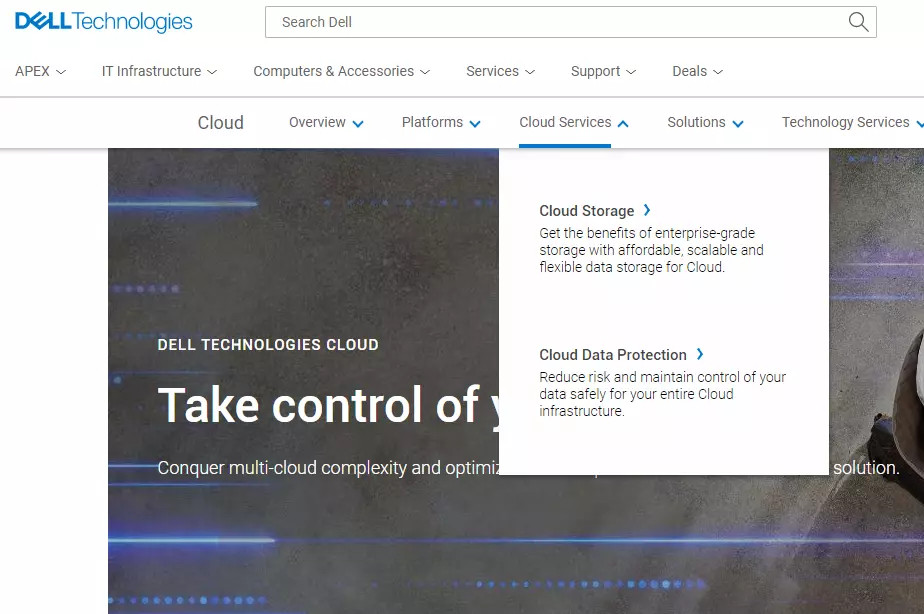 dell technologies cloud
dell technologies cloud
Dell Technologies Cloud, in partnership with VMware, provides hybrid and multi-cloud solutions, focusing on virtualization and infrastructure management. Dell Technologies Cloud is well-suited for organizations seeking to extend their existing VMware environments into the cloud. It offers a strong emphasis on storage, data protection, and enterprise-grade infrastructure.
12. Cisco Cloud Solutions – Best Used For Hybrid Cloud Strategies
Cisco Cloud Solutions, while a later entrant into the cloud market, leverages Cisco’s networking expertise to offer robust hybrid and multi-cloud solutions. Cisco’s strengths lie in providing secure and integrated networking solutions for cloud environments. They are particularly valuable for organizations with complex networking requirements and hybrid cloud strategies seeking seamless integration between on-premises and cloud infrastructure. Cisco’s focus on security and operational efficiency makes them a solid choice for businesses prioritizing these aspects.
13. Rackspace – Best For Unpredictable Cloud Needs
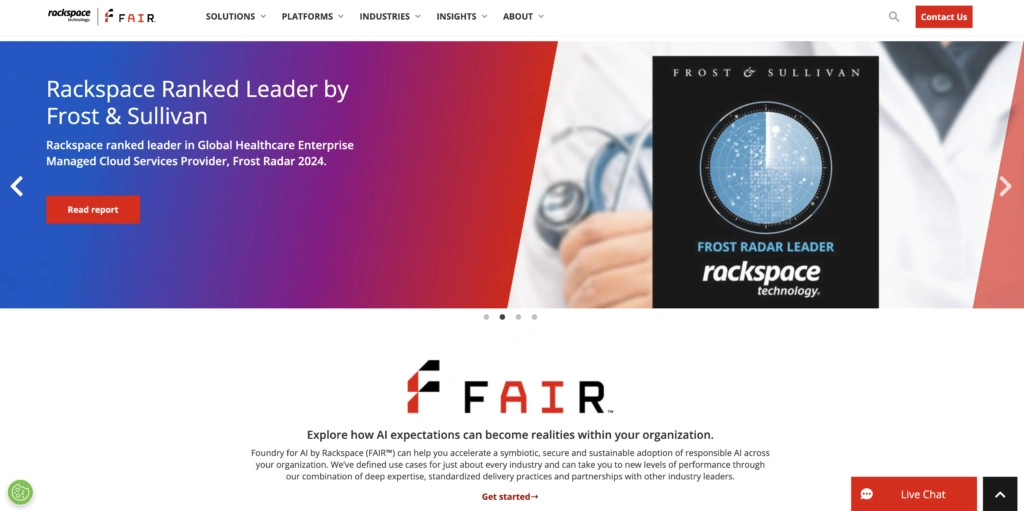 Rackspace logo
Rackspace logo
Rackspace differentiates itself with its managed cloud services and “Fanatical Experience®” customer support. Rackspace offers managed services across various cloud platforms, providing expert support and management for businesses that need assistance with cloud operations. They cater to organizations with unpredictable workloads and those seeking a high level of managed support.
Honorary Mentions
- Hewlett Packard Enterprise (HPE) services: HPE is focusing on Edge-to-Cloud computing and hybrid cloud deployments, providing solutions that extend cloud capabilities to the edge.
- Linode Cloud services: Linode specializes in providing virtual machines, managed databases, Kubernetes, and cloud storage, catering to developers and businesses seeking straightforward and affordable cloud infrastructure.
Conclusion: Choosing the Right Cloud Server Provider for Your Needs
Selecting the right cloud server provider is a critical decision that can significantly impact a business’s success. The optimal choice depends on various factors, including your specific needs, technical requirements, budget, security considerations, and long-term strategic goals.
When evaluating cloud server providers, consider factors such as:
- Service offerings: Does the provider offer the specific services you need (IaaS, PaaS, SaaS)?
- Scalability and performance: Can the provider scale resources to meet your growing demands and ensure optimal performance?
- Reliability and availability: Does the provider have a proven track record of reliability and high availability?
- Security and compliance: Does the provider meet your security and compliance requirements?
- Pricing model: Is the pricing model transparent, competitive, and aligned with your budget?
- Support and managed services: Does the provider offer adequate support and managed services if needed?
- Geographic reach: Does the provider have data centers in regions relevant to your business and customers?
By carefully evaluating these factors and understanding the strengths and weaknesses of different cloud server providers, businesses can make informed decisions and leverage the power of cloud computing to achieve their objectives.
Author: Cody Slingerland

